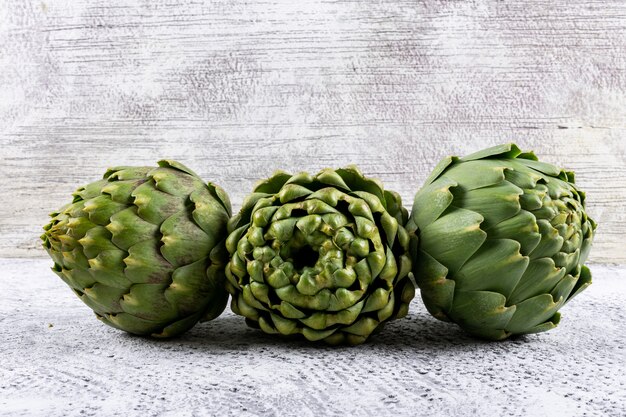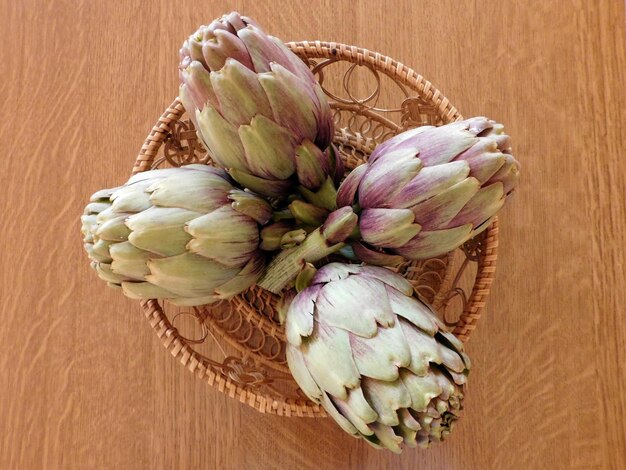Artichokes have become a popular choice in the world of healthy eating. Known for their unique flavor and impressive nutritional profile, artichokes are gaining popularity across the United States. But are artichokes healthy, and how can they improve your well-being?
This article explores everything you need to know about artichokes, including their origins, nutritional value, and significant health benefits. By the end, you’ll understand why this vegetable is a must-have in your diet.
What Are Artichokes?
Artichokes have an intriguing history and multiple culinary uses. They are actually a type of thistle, known scientifically as Cynara scolymus.
A Brief History of Artichokes
Artichokes were first cultivated in the Mediterranean region thousands of years ago. Ancient Greeks and Romans prized them for their medicinal properties and rich flavor. Today, they are a staple in Italian, French, and Mediterranean cuisines.
Types of Artichokes
There are several varieties of artichokes, including:
- Globe Artichoke: The most common type, large and round.
- Baby Artichoke: Smaller and easier to cook, with tender leaves.
- Purple Artichoke: A vibrant, colorful variety with a slightly sweeter taste.
Culinary Uses in American Cuisine
Artichokes are versatile and used in various dishes:
- Steamed or roasted as a side dish.
- Added to salads for extra texture and nutrients.
- Used in dips, such as the classic spinach artichoke dip.
Artichoke Nutrition Facts
Artichokes are a powerhouse of essential nutrients. Below is a breakdown of their nutritional content per 100 grams:
| Nutrient | Amount per 100g |
| Calories | 47 |
| Carbohydrates | 11g |
| Dietary Fiber | 5.4g |
| Protein | 3.3g |
| Vitamin C | 15mg (20% DV) |
| Vitamin K | 14mcg (18% DV) |
| Folate | 68mcg (17% DV) |
| Potassium | 370mg (8% DV) |
| Magnesium | 50mg (12% DV) |
Key Takeaways
- Artichokes are low in calories but packed with nutrients.
- They are an excellent source of dietary fiber, vitamins, and minerals.
Related to Read: Stuffed Artichokes Recipe
Health Benefits of Artichokes
Artichokes are more than just a delicious addition to your meals—they’re a nutritional powerhouse that offers a wide range of health benefits. Packed with vitamins, minerals, and unique compounds, artichokes can support your overall health in numerous ways. In this article, we’ll dive into the remarkable health benefits of artichokes and why they deserve a place on your plate.

Rich Source of Nutrients
Artichokes are nutrient-dense, offering a variety of vitamins and minerals in a single serving.
Essential Vitamins and Minerals
Artichokes are rich in:
- Vitamin C: Supports immune health and skin repair.
- Vitamin K: Plays a role in blood clotting and bone health.
- Folate: Crucial for cell growth and brain function.
- Magnesium and Potassium: Help maintain healthy muscle and nerve function.
Low in Calories
With just 47 calories per 100 grams, artichokes are an excellent choice for those looking to maintain or lose weight without compromising on nutrition.
Boosts Digestive Health
One of the standout benefits of artichokes is their ability to support digestion.
High in Dietary Fiber
Artichokes contain about 5.4 grams of dietary fiber per 100 grams. Fiber promotes regular bowel movements and prevents constipation.
Prebiotic Properties
Artichokes are rich in inulin, a type of prebiotic that feeds the beneficial bacteria in your gut. This improves gut health and enhances nutrient absorption.
Reduces Bloating
By improving digestion and gut balance, artichokes can help alleviate bloating and discomfort.
Supports Heart Health
Artichokes contribute to heart health in multiple ways.
Lowers Bad Cholesterol
The antioxidants cynarin and luteolin in artichokes help lower LDL (bad) cholesterol levels, reducing the risk of heart disease.
Maintains Healthy Blood Pressure
Artichokes are rich in potassium, which helps regulate blood pressure and prevents hypertension.
Enhances Liver Function
Artichokes are well-known for their liver-protective properties.
Detoxifies the Liver
Compounds like cynarin and silymarin support liver detoxification by promoting bile production. This helps the liver eliminate toxins more efficiently.
Helps Manage Fatty Liver
Artichokes have shown potential in improving liver health in people with non-alcoholic fatty liver disease (NAFLD).
Promotes Weight Loss
If you’re looking to shed some pounds, artichokes are a great addition to your low-calorie diet.
Low-Calorie, High-Fiber Food
Artichokes are filling yet low in calories, making them ideal for weight management. Their high fiber content helps control appetite and reduces overeating.
Keto-Friendly
Artichokes are low in carbohydrates, making them a suitable option for keto and low-carb diets.
Strengthens the Immune System
Artichokes are rich in antioxidants, which help protect the body against infections and diseases.
Antioxidant Powerhouse
Compounds like quercetin, rutin, and gallic acid combat oxidative stress, reducing inflammation and supporting immune health.
Supports Bone Health
Artichokes provide essential nutrients for strong and healthy bones.
Vitamin K and Magnesium
Both nutrients are crucial for maintaining bone density and preventing osteoporosis.
Improves Skin Health
Artichokes’ high antioxidant content can also benefit your skin.
Combats Aging
Antioxidants help protect your skin from free radical damage, keeping it youthful and radiant.
Supports Collagen Production
Vitamin C in artichokes boosts collagen production, which is vital for skin elasticity and repair.
Regulates Blood Sugar Levels
Artichokes are a diabetic-friendly food, thanks to their fiber and specific compounds.
Fiber for Sugar Control
The fiber in artichokes slows down the absorption of sugar, helping to regulate blood sugar levels.
Insulin Sensitivity
Some studies suggest artichokes may improve insulin sensitivity, making them beneficial for individuals with type 2 diabetes.
May Reduce Cancer Risk
Preliminary research has shown that artichokes may have cancer-fighting properties.
Rich in Polyphenols
Polyphenols in artichokes have been linked to reduced risk of certain cancers by neutralizing harmful free radicals.
Promotes Cellular Repair
The antioxidants and nutrients in artichokes help repair DNA and maintain healthy cell function.
Are Canned Artichokes Healthy?
Canned artichokes are a convenient option when fresh ones aren’t available. But are they as healthy as their fresh counterparts?
Pros of Canned Artichokes
- Convenience: Ready to use, saving time on preparation.
- Nutrient Retention: Canning preserves most nutrients, including fiber and minerals.
Cons of Canned Artichokes
- High Sodium Content: Many canned artichokes contain added salt or preservatives, with sodium levels ranging from 300–500 mg per serving.
- Potential Preservatives: Some brands include additives that may reduce their overall health value.
Health Tip: Look for canned artichokes labeled “low-sodium” or “no salt added” for a healthier choice.
Related to Read: Is Garlic a Vegetable? A Comprehensive Guide
Are Marinated Artichokes Healthy?
Marinated artichokes are often packed with flavorful oils and spices. While they’re tasty, their healthiness depends on the ingredients used.
Benefits of Marinated Artichokes
- Rich Flavor: Ideal for adding a tangy taste to salads and antipasti.
- Retains Nutrients: Fiber and essential minerals remain intact.
Potential Downsides
- Added Oils and Fats: Marinated artichokes are often preserved in oil, increasing calorie content.
- High Sodium Levels: Many varieties contain added salt for flavor and preservation.
Health Tip: Choose marinated artichokes packed in water or with minimal oil and salt.
Are Frozen Artichokes Healthy?
Frozen artichokes are another convenient option. They are often flash-frozen at peak freshness, preserving their nutrients.
Preservation of Nutrients
- Nutrient Retention: Freezing maintains the fiber, vitamins, and minerals of fresh artichokes.
- No Preservatives: Frozen artichokes are typically free of added salt or preservatives.
Comparison to Fresh Artichokes
- Frozen artichokes are nearly as nutritious as fresh ones, making them a great alternative when fresh artichokes are out of season.
Health Tip: Opt for plain frozen artichokes without sauces or seasonings for maximum health benefits.
Artichokes and Special Diets
Artichokes are versatile and fit into many special diets, from keto to vegan.

Are Artichokes Good for Keto and Low-Carb Diets?
- Artichokes are low in net carbs, making them suitable for keto diets when eaten in moderation.
- High fiber content helps reduce the impact of carbs on blood sugar levels.
Vegan and Gluten-Free
- Artichokes are naturally vegan and gluten-free, making them a perfect addition to plant-based and gluten-free diets.
Artichoke Side Effects and Precautions
While artichokes are generally safe and healthy, some individuals may experience side effects.
Possible Allergic Reactions
- People allergic to plants in the daisy family (e.g., chamomile, ragweed) may react to artichokes.
Risks of Overconsumption
- Consuming large amounts of artichokes may cause bloating or gas due to their high fiber content.
Who Should Avoid Artichokes?
- Individuals with gallstones or bile duct obstruction should consult a doctor before eating artichokes, as they may stimulate bile production.
How to Incorporate Artichokes into Your Diet
Artichokes are delicious and versatile, suitable for a variety of recipes and preparations.
Easy Recipes and Serving Suggestions
- Grilled Artichokes: Brush with olive oil, season with herbs, and grill until tender.
- Artichoke Dip: Combine artichokes with spinach, cheese, and spices for a creamy dip.
- Artichoke Salad: Toss marinated artichokes into salads with greens, tomatoes, and olives.
Tips for Selecting and Storing Artichokes
- Fresh Artichokes: Look for tightly packed leaves and a vibrant green color.
- Storage: Refrigerate fresh artichokes in a plastic bag and use within a week.
Frequently Asked Questions (FAQs)
Are Artichokes Good for Digestion?
Yes, artichokes are high in dietary fiber, which supports gut health and regular bowel movements.
Do Artichokes Help with Weight Loss?
Absolutely! Artichokes are low in calories and high in fiber, making them filling and weight-loss-friendly.
Are Artichokes High in Fiber?
Yes, they are among the most fiber-rich vegetables, with about 5.4 grams per 100 grams.
Are Canned or Frozen Artichokes as Healthy as Fresh Ones?
Canned and frozen artichokes retain most of their nutrients, but choose low-sodium or unseasoned options for maximum health benefits.
What Are the Side Effects of Eating Artichokes?
Artichokes may cause bloating or gas if consumed in excess and may trigger allergic reactions in some individuals.
Conclusion
Artichokes, in all their forms—fresh, canned, marinated, or frozen—offer incredible health benefits when consumed mindfully. From supporting digestion to enhancing heart and liver health, they are a versatile and delicious addition to any diet. Whether you grill them, toss them into a salad, or enjoy them as a dip, artichokes are a superfood worth exploring.
Ready to add artichokes to your meals? Share your favorite recipes or tips in the comments below!

